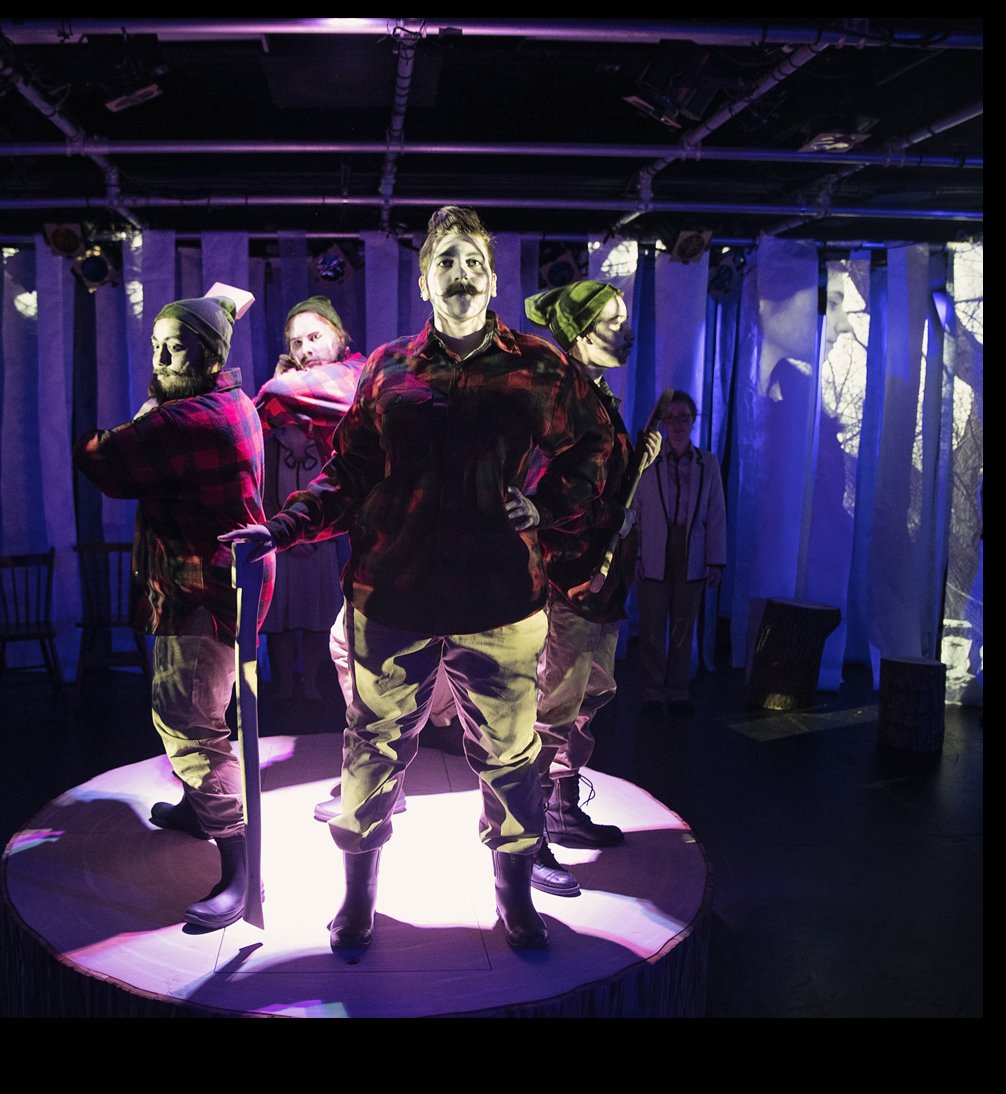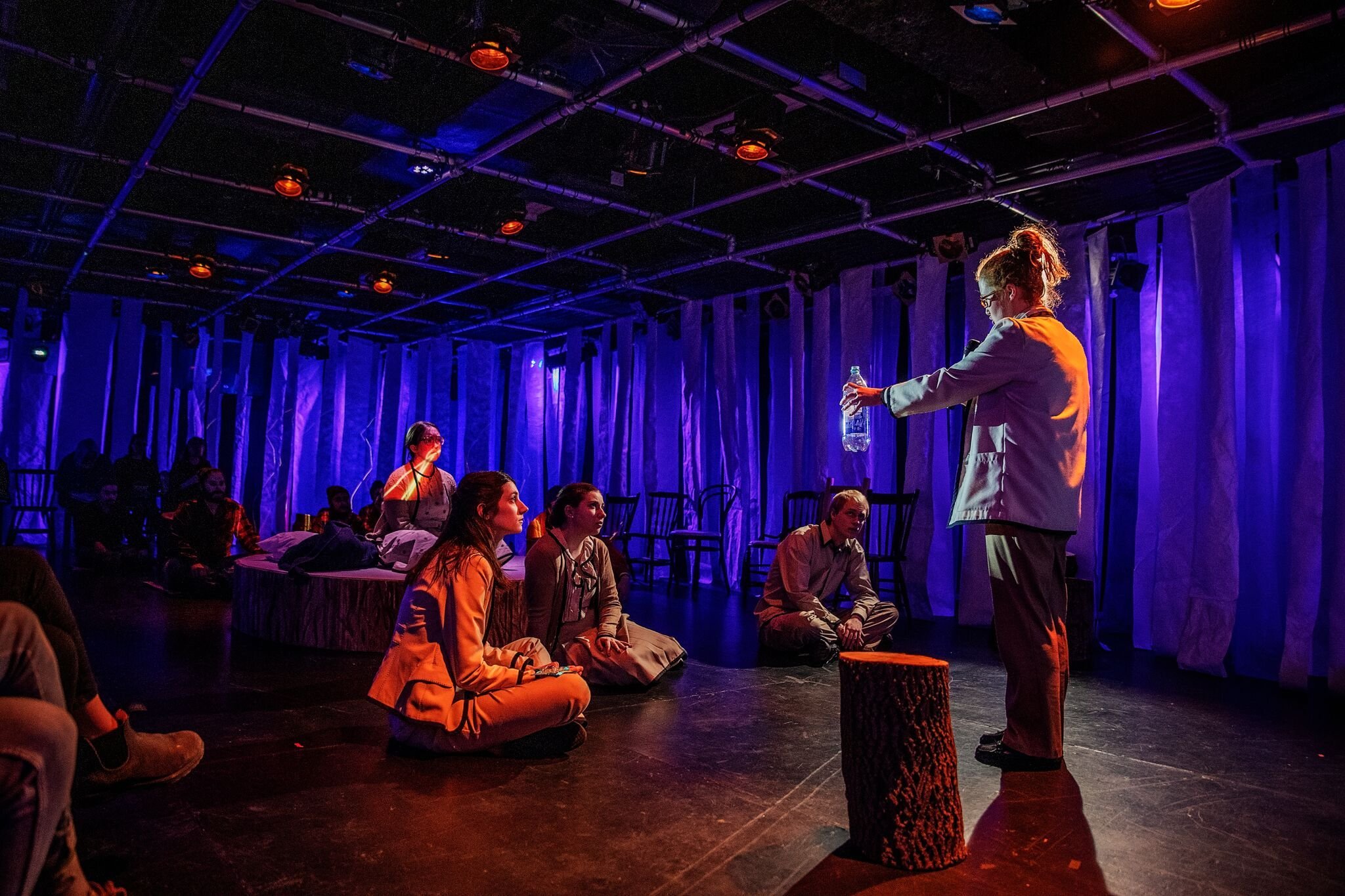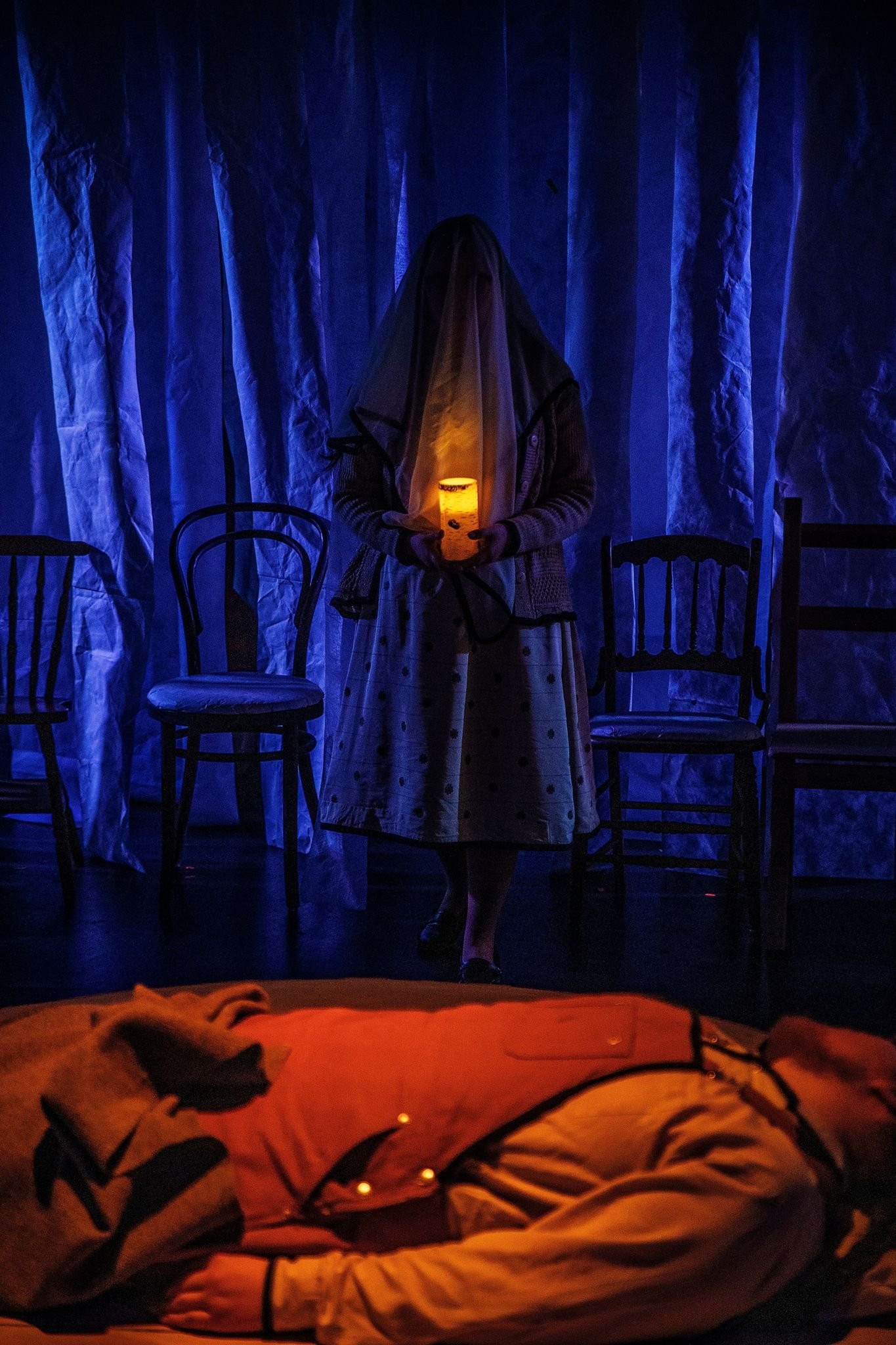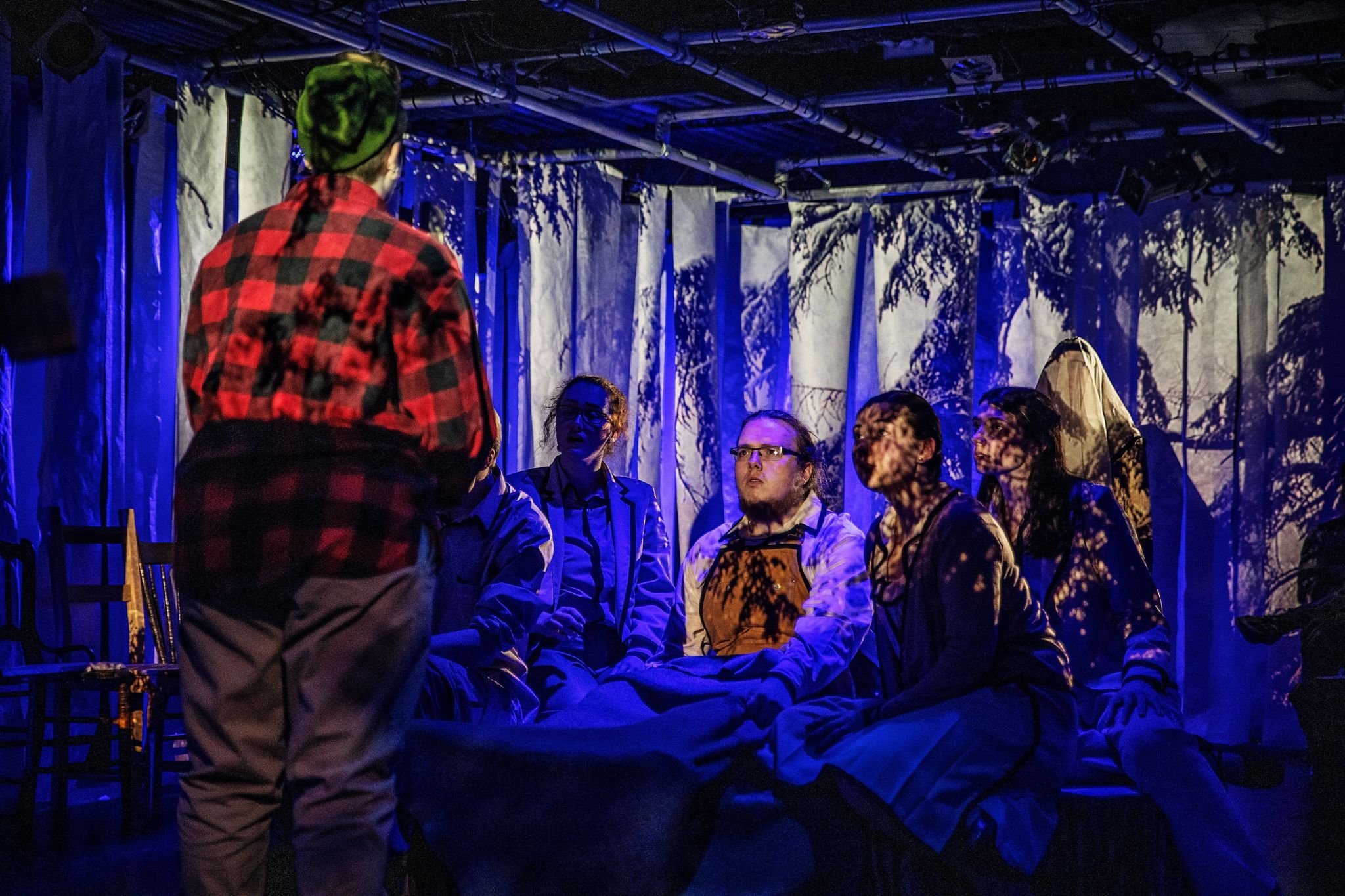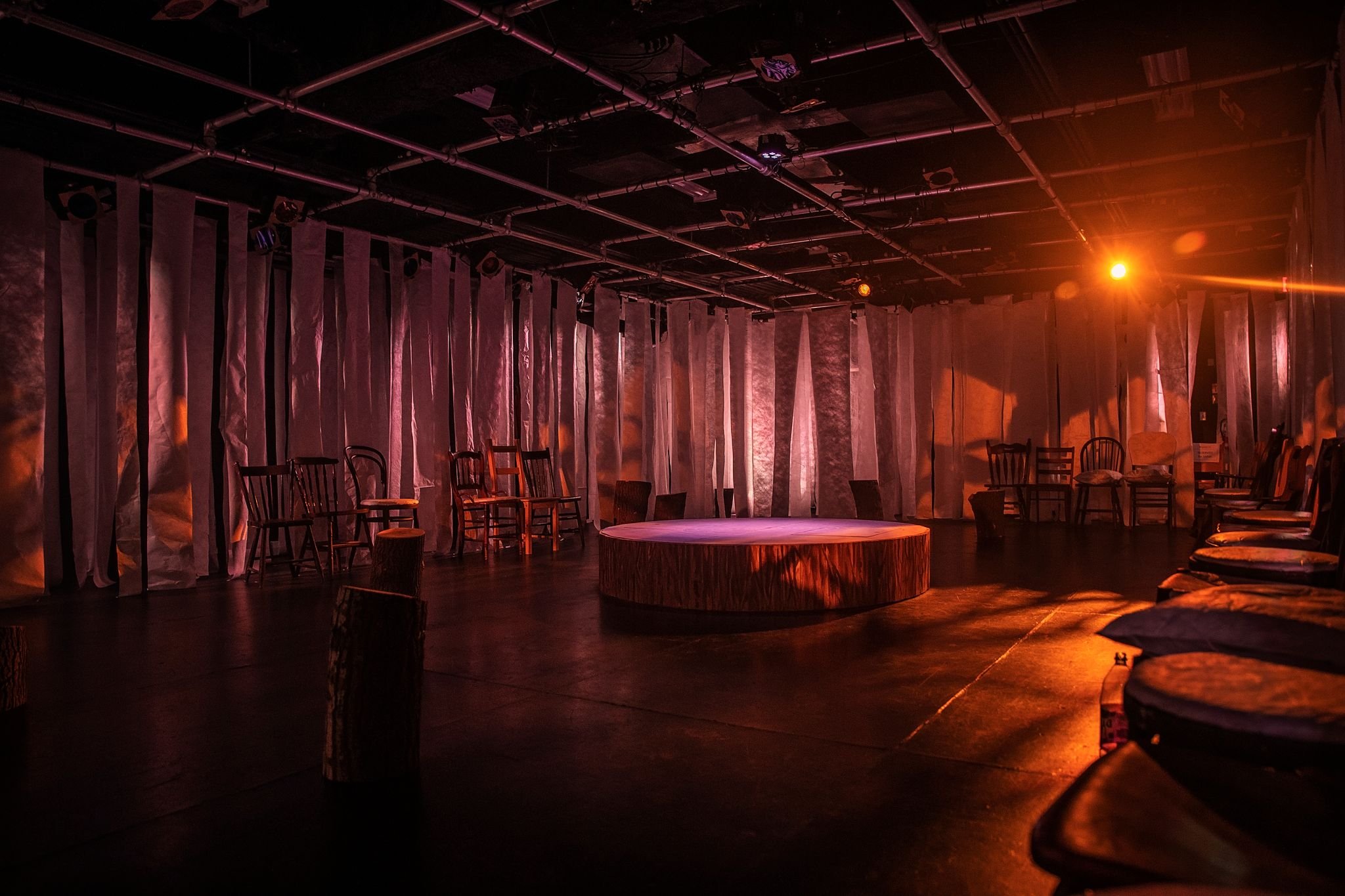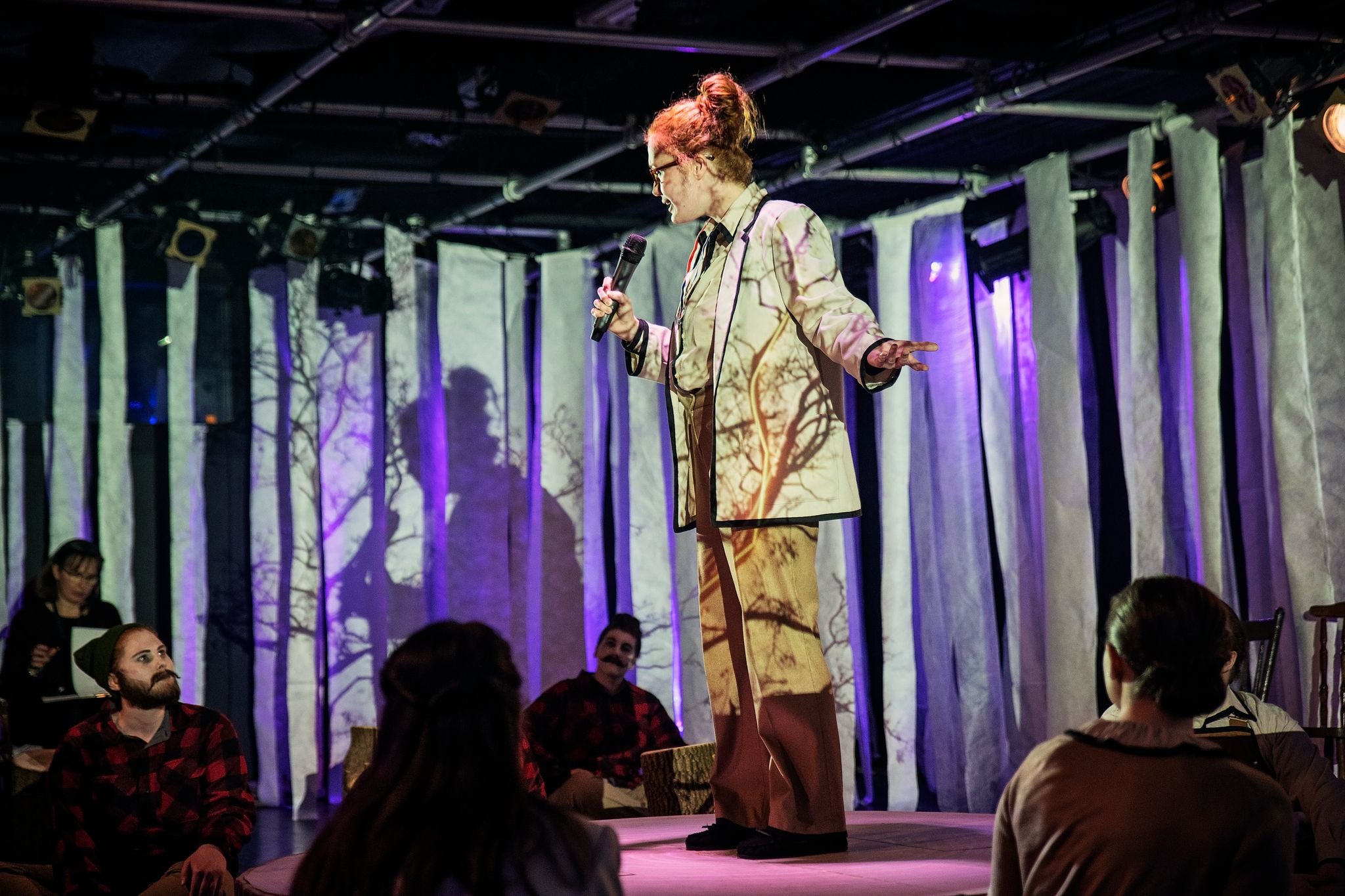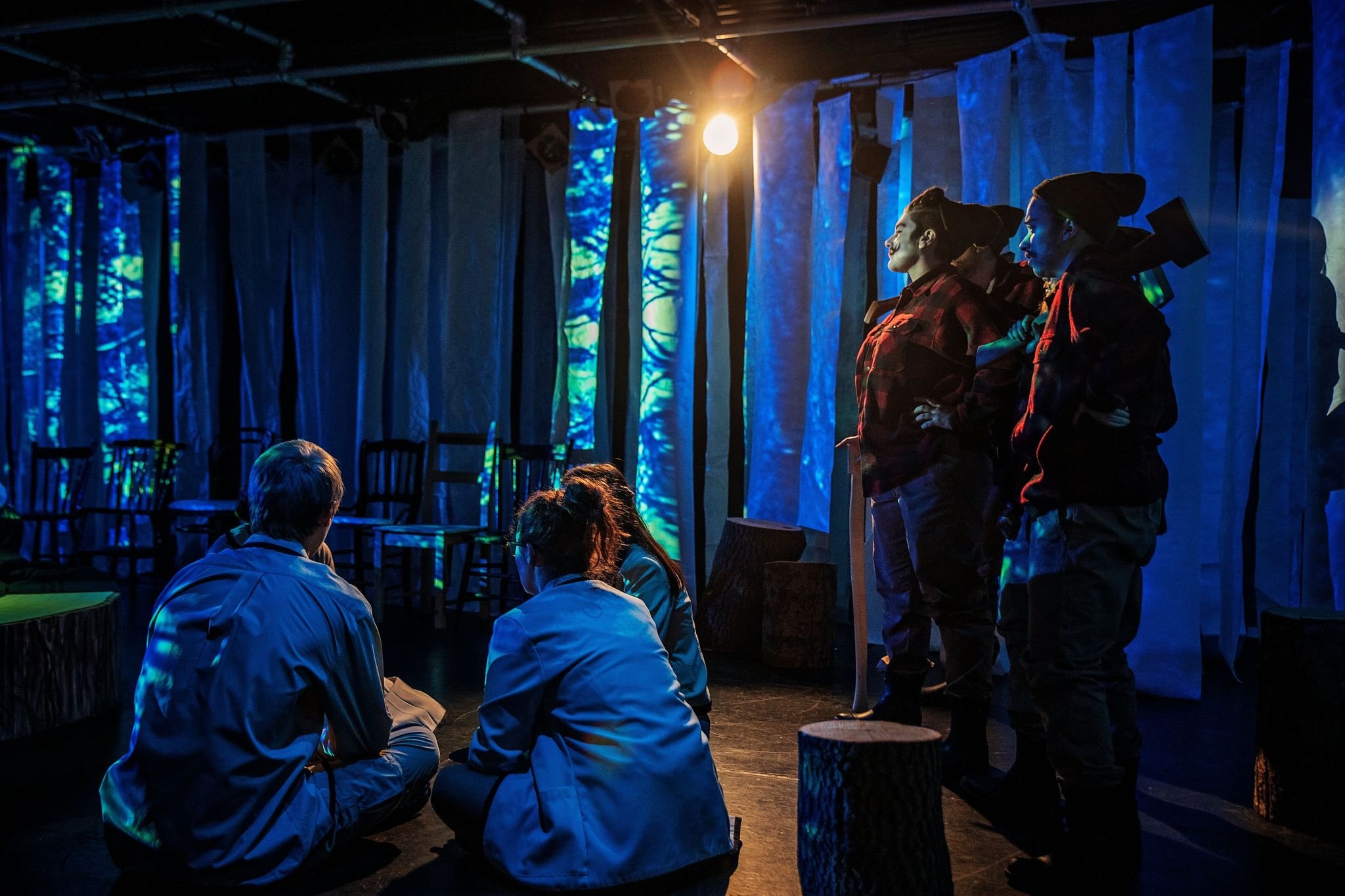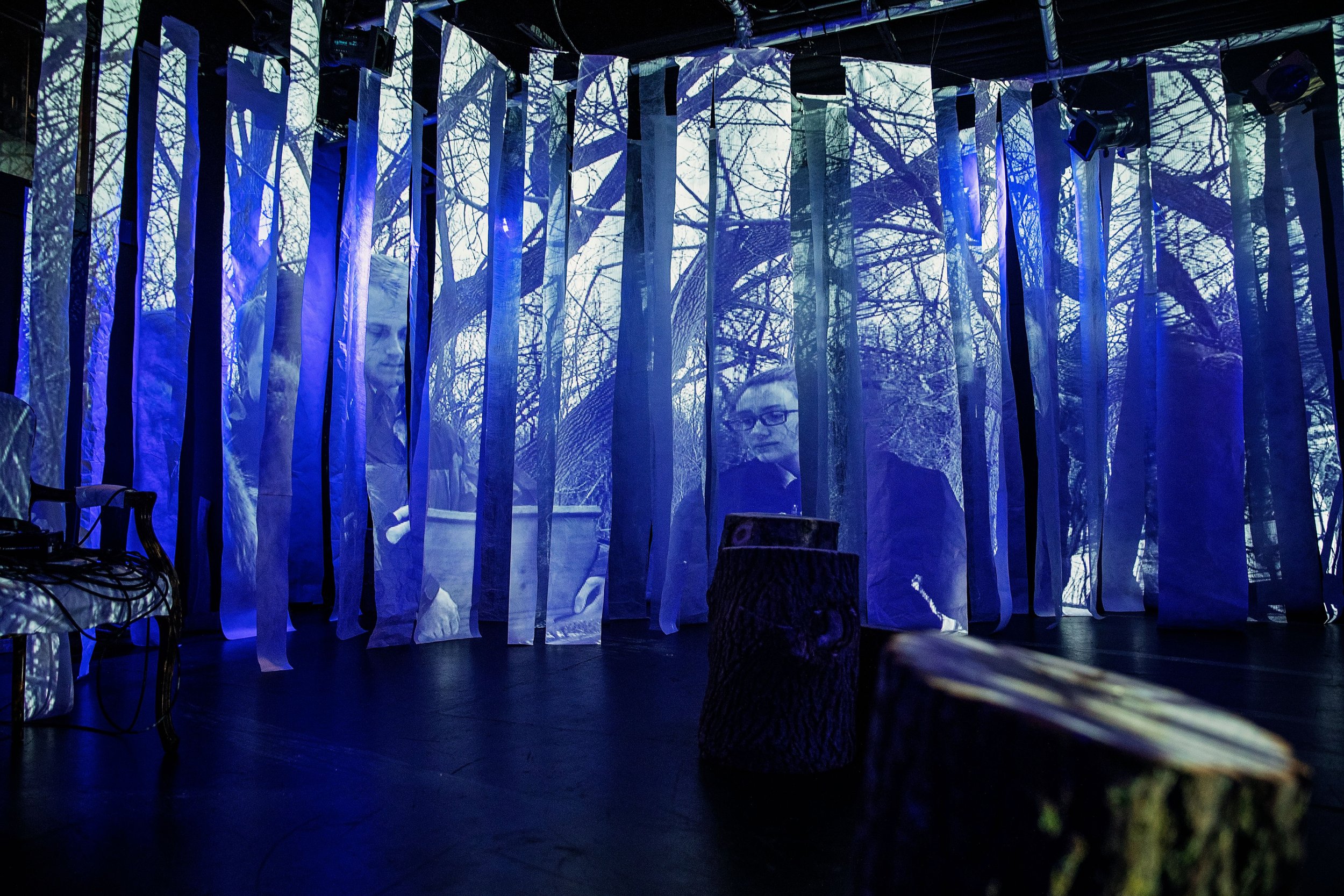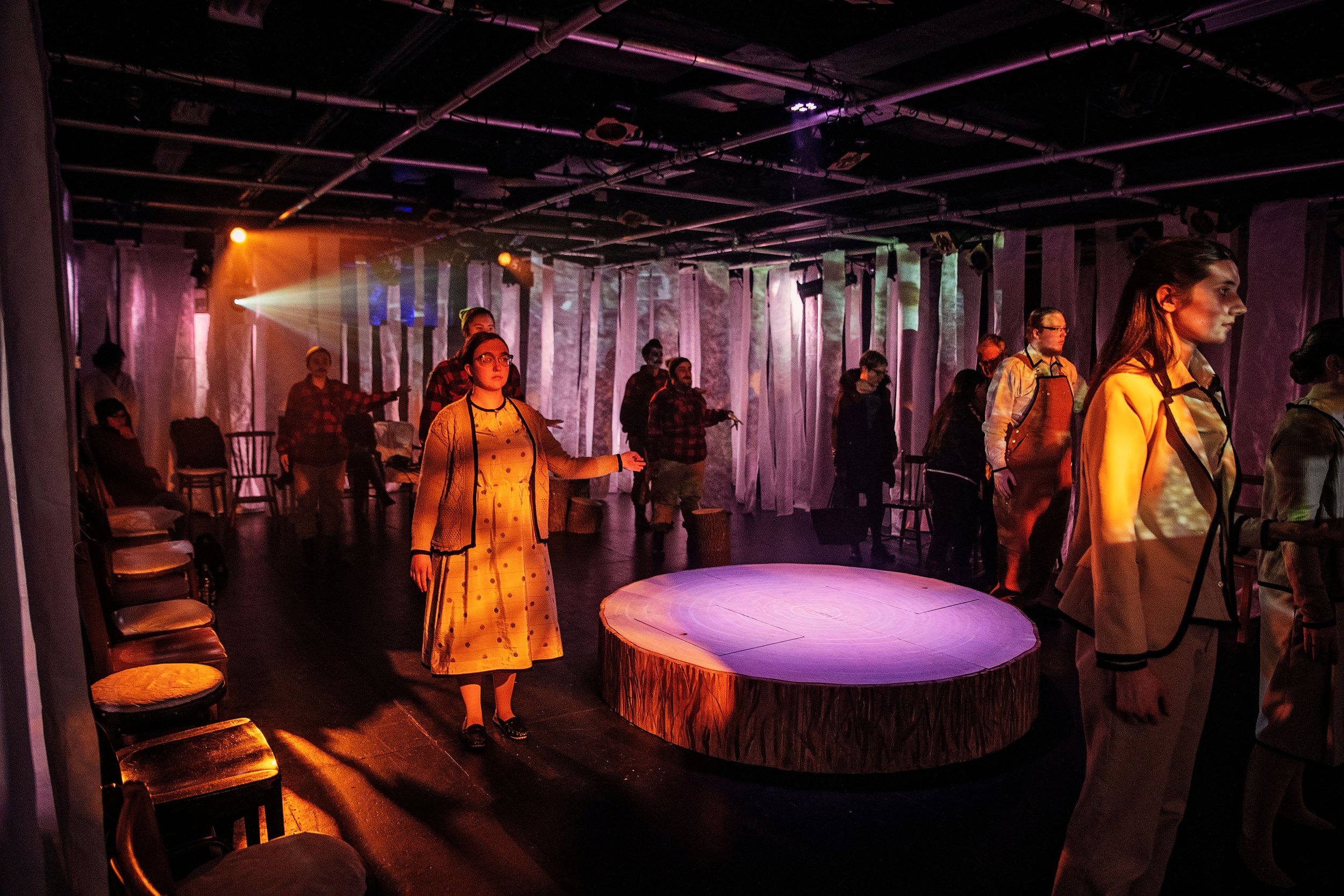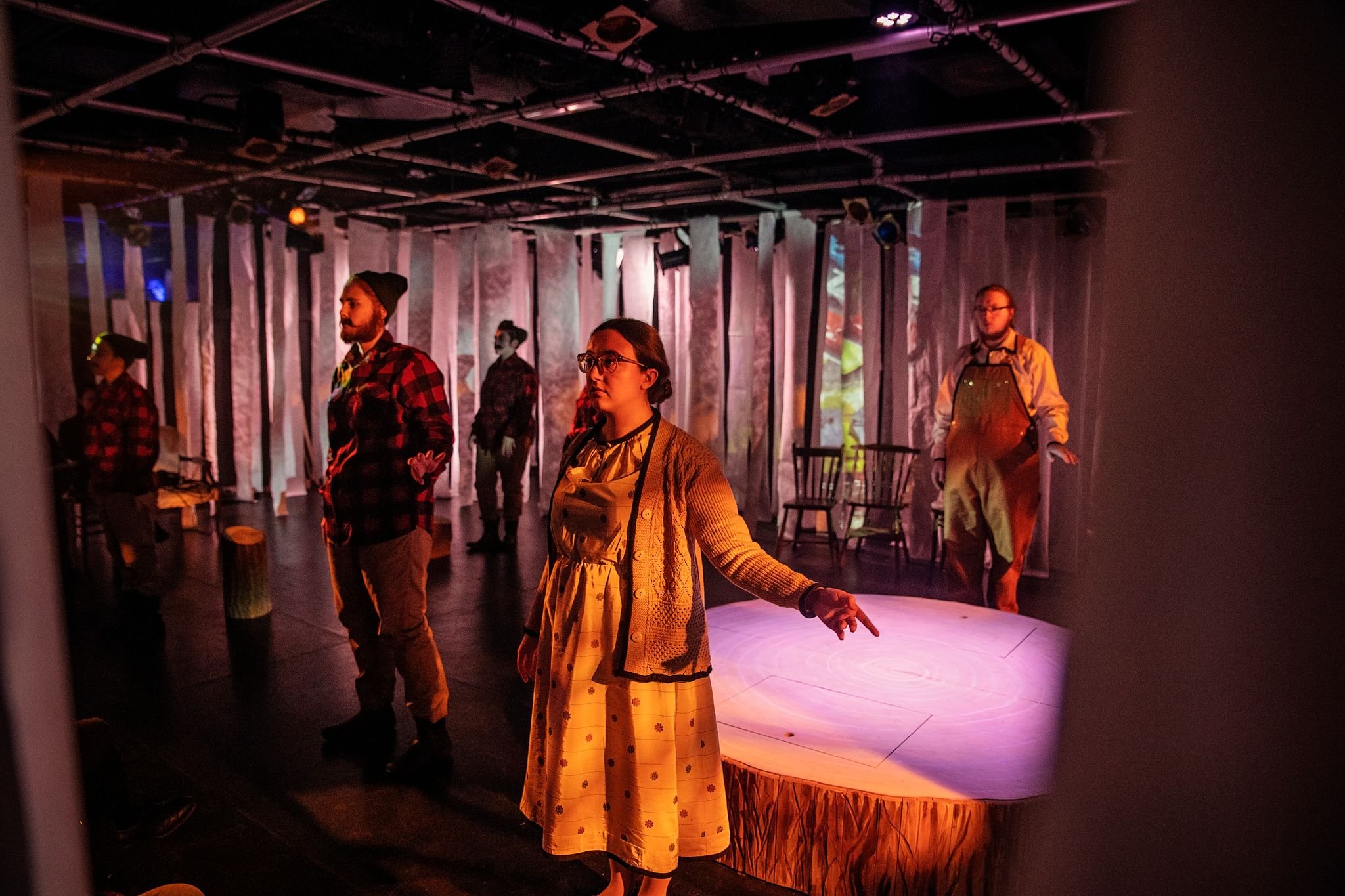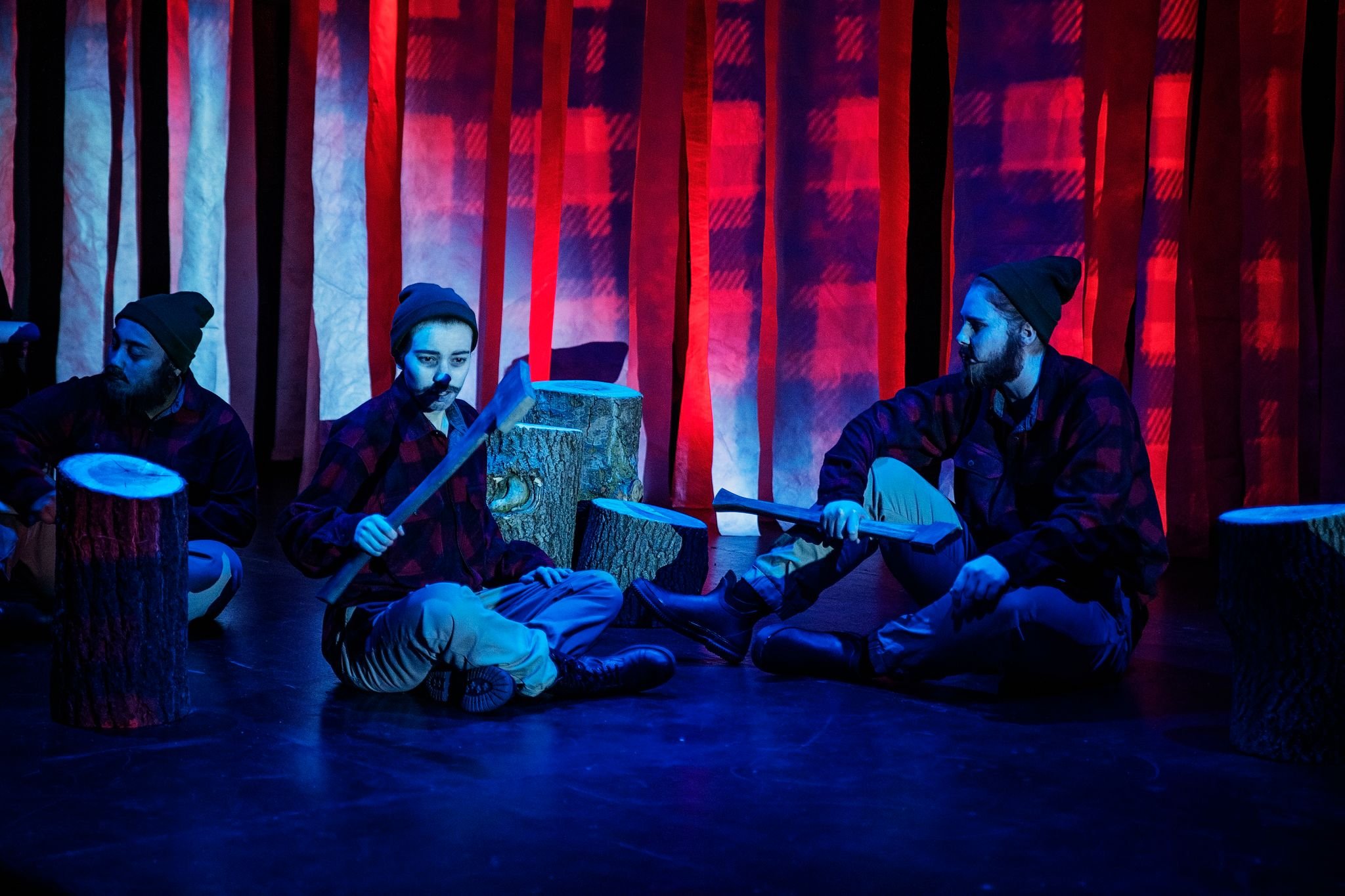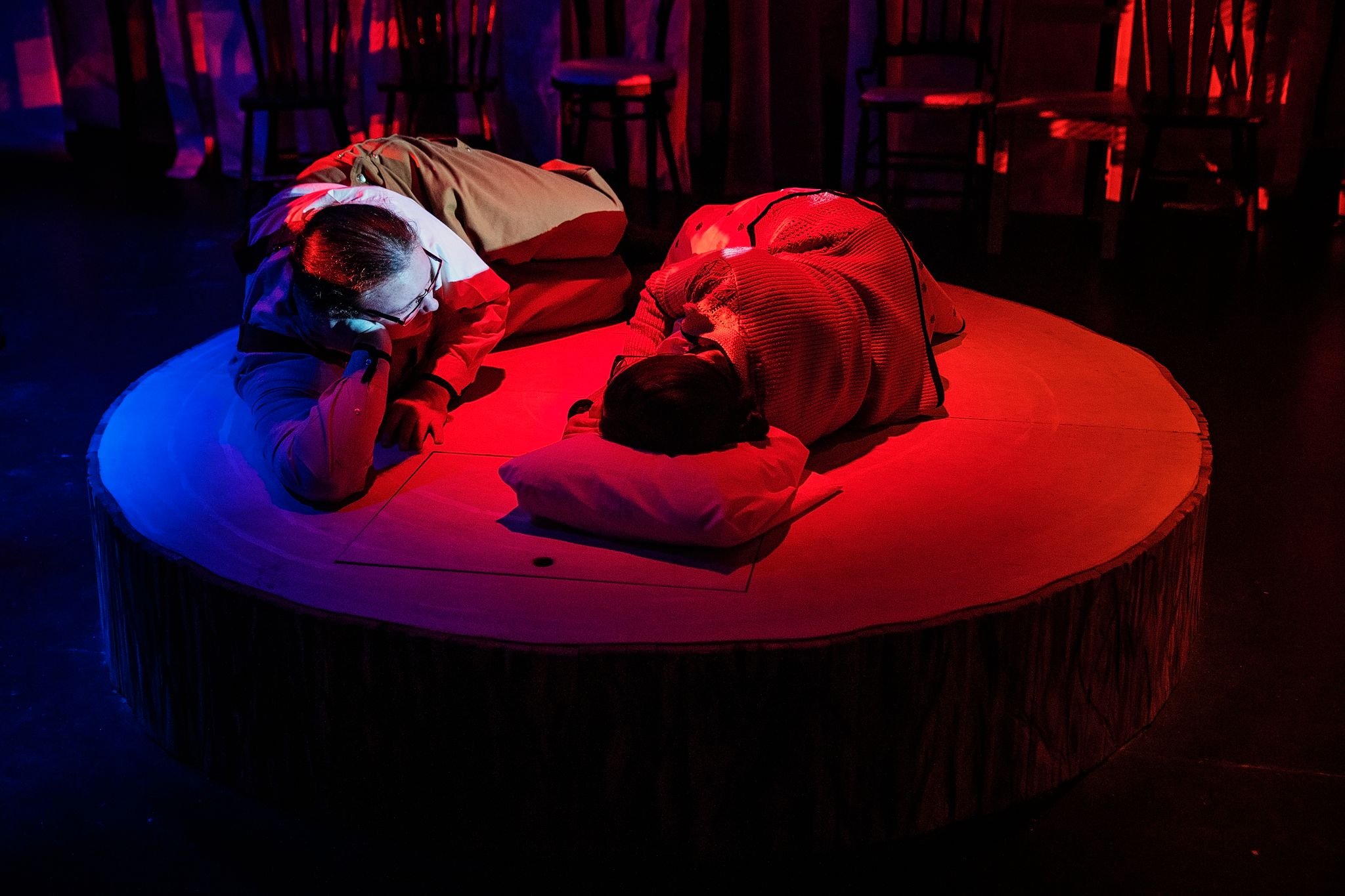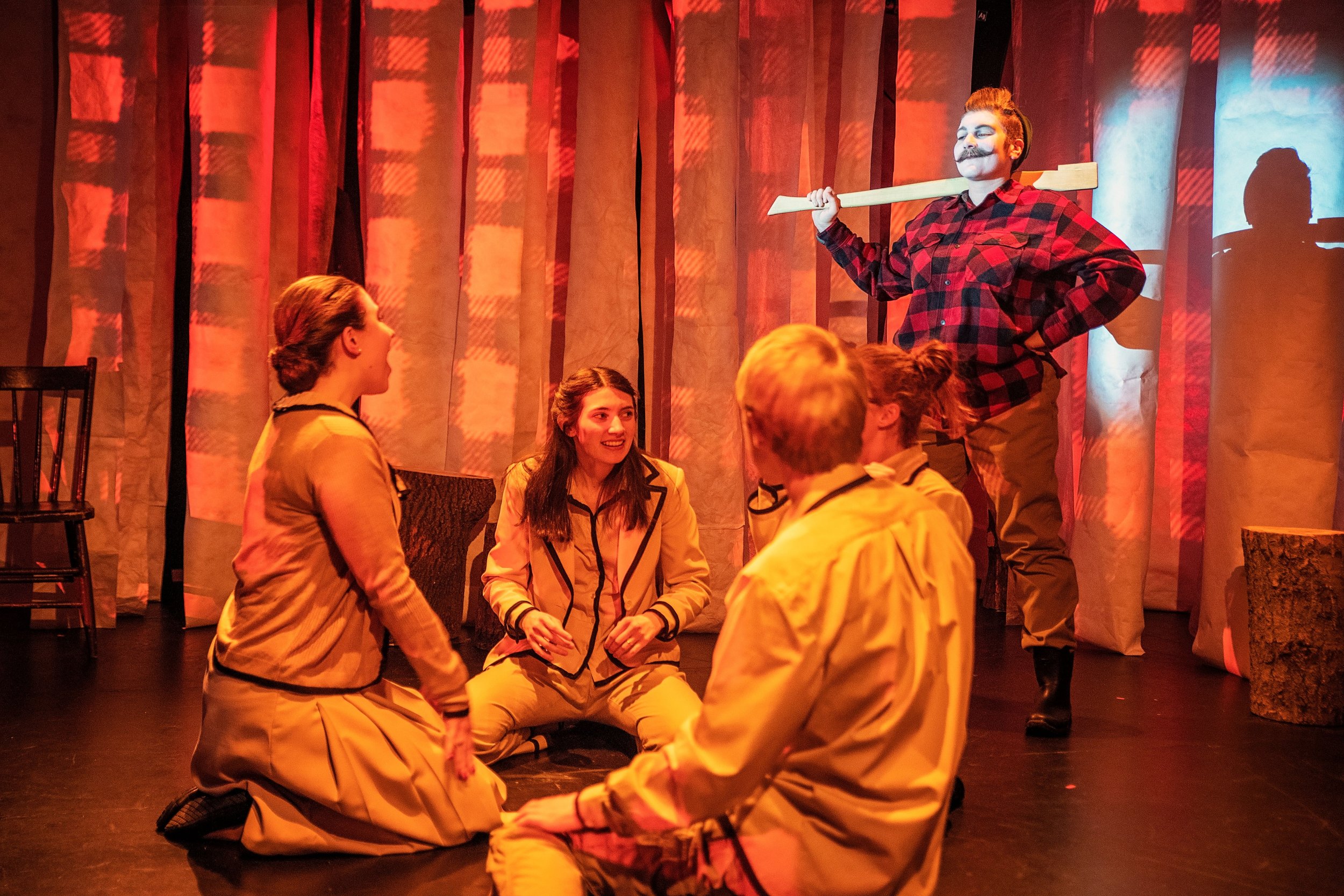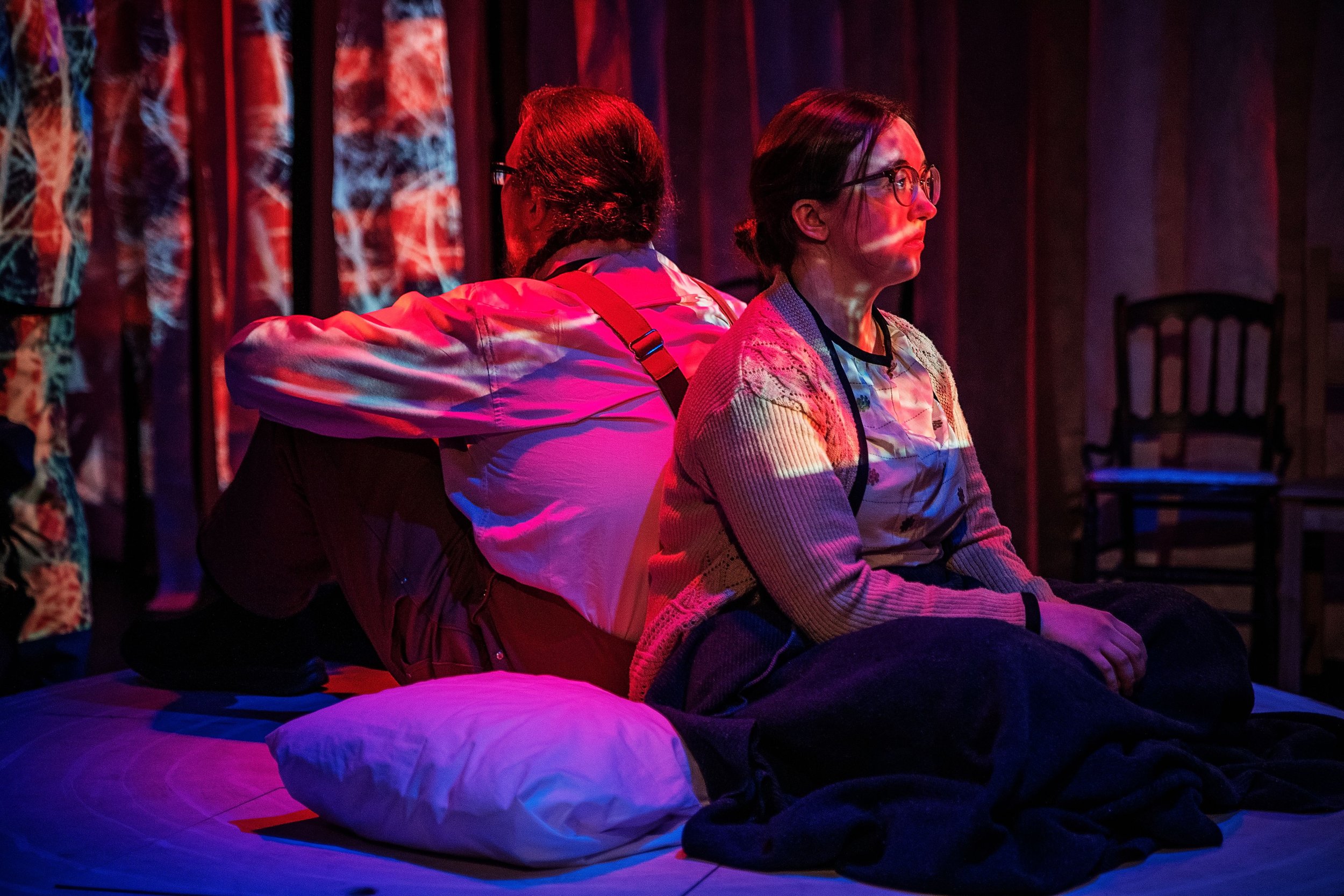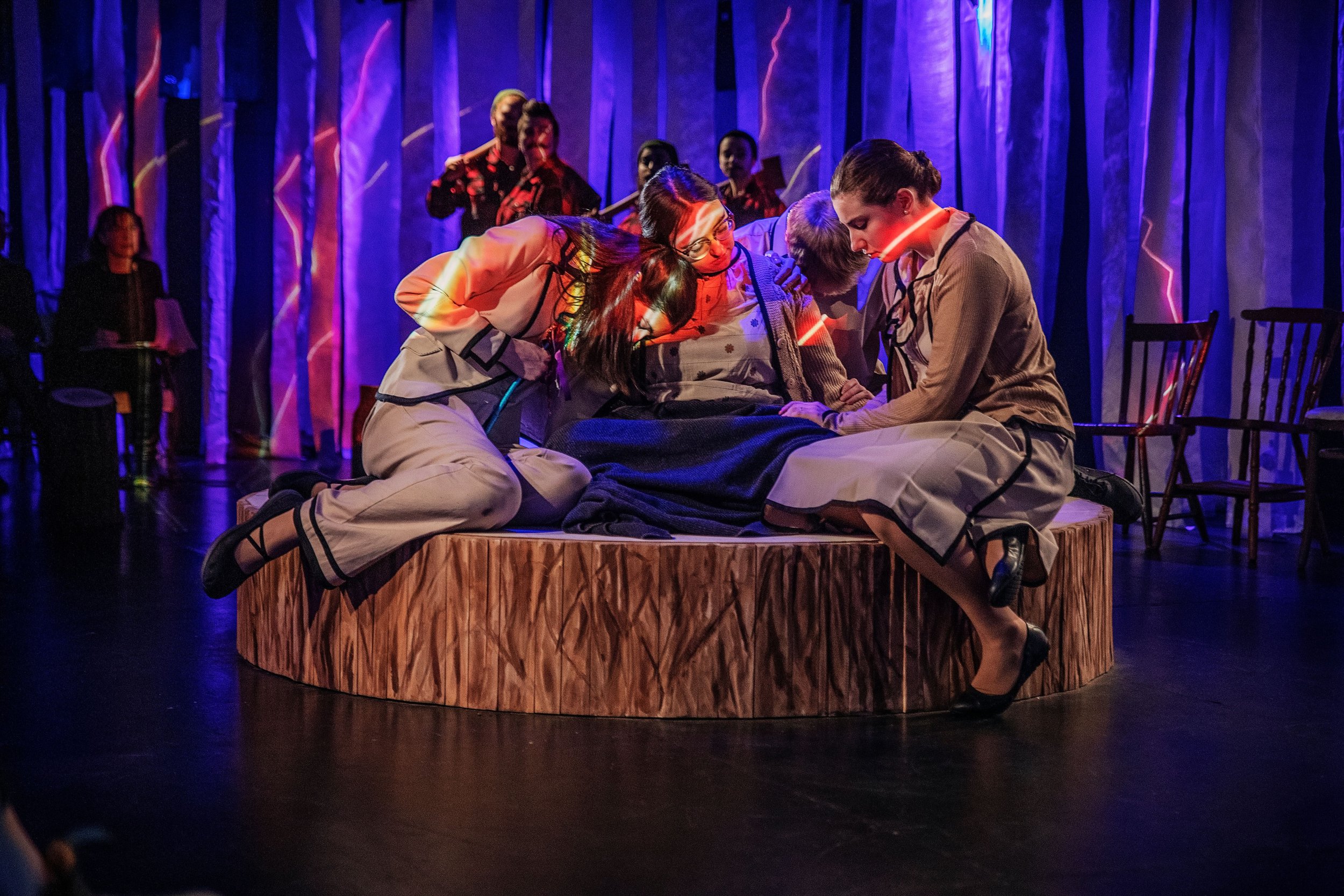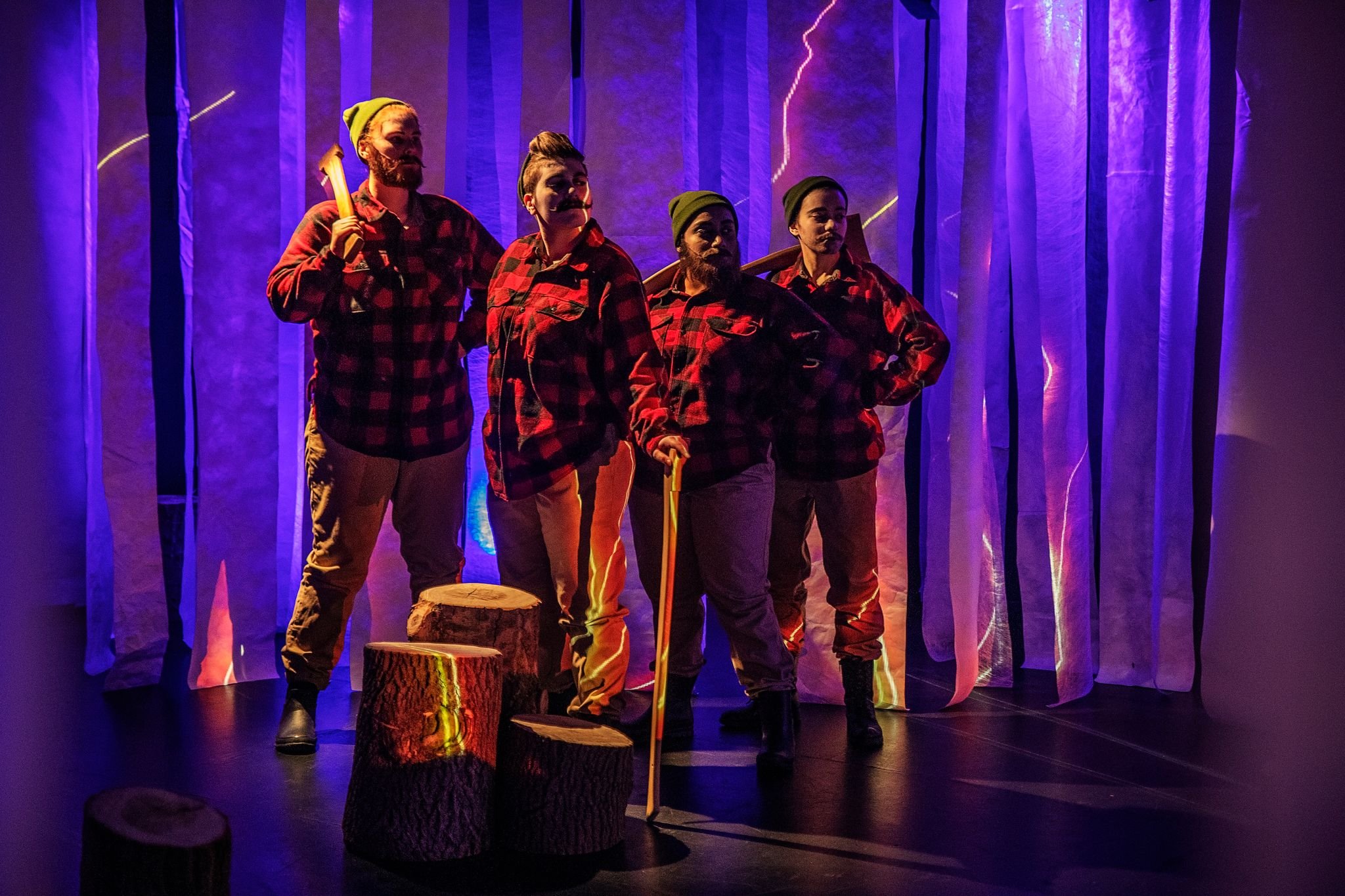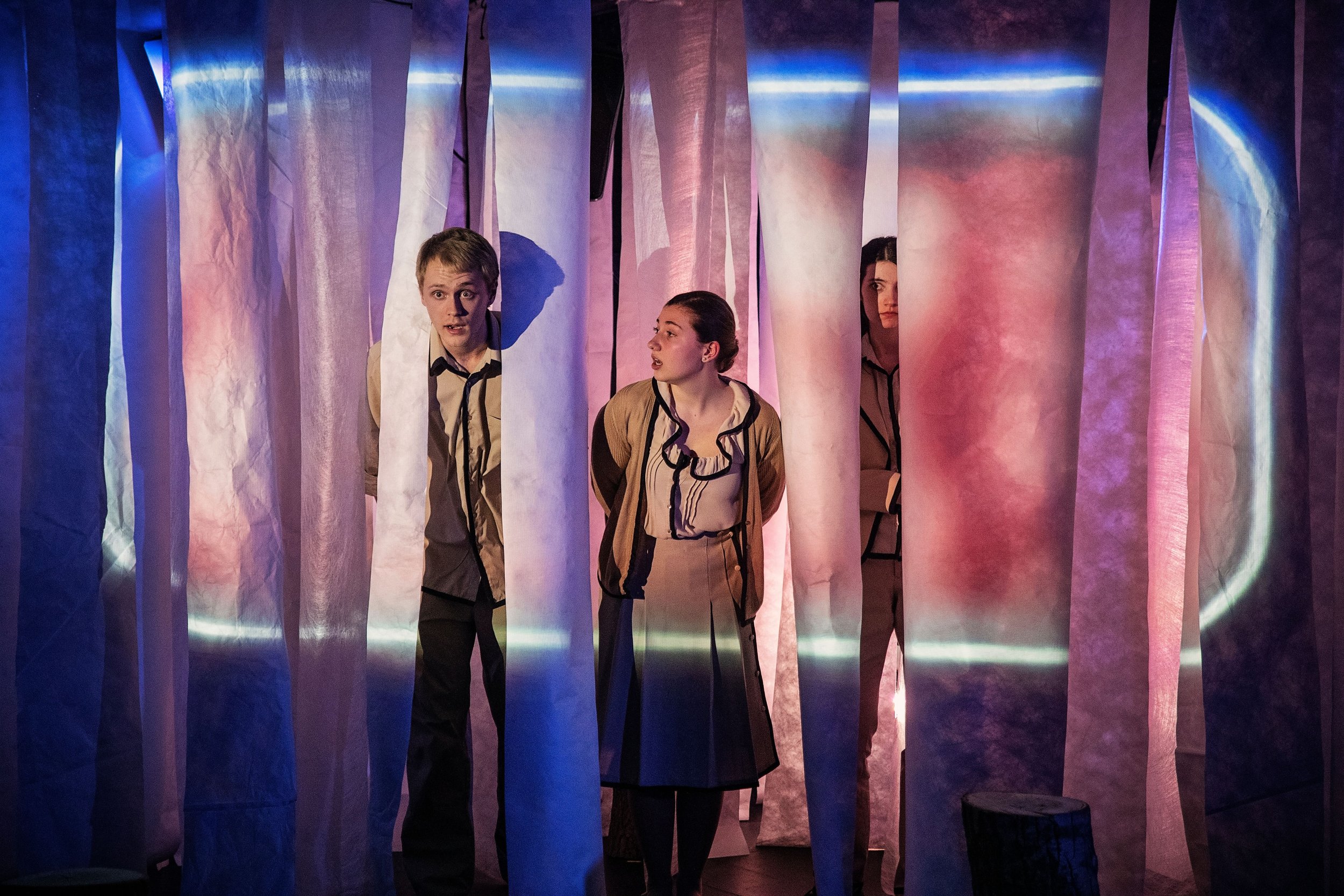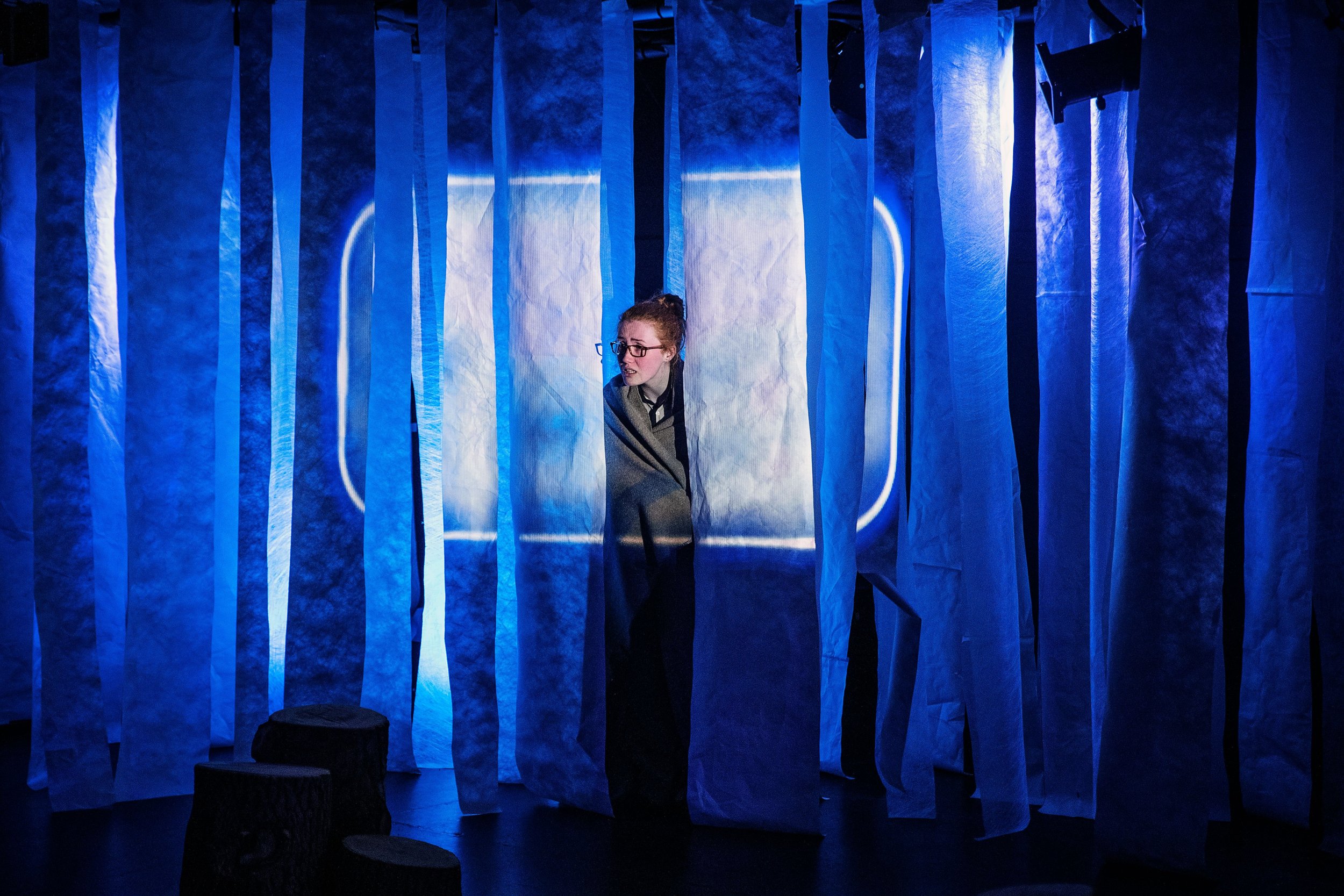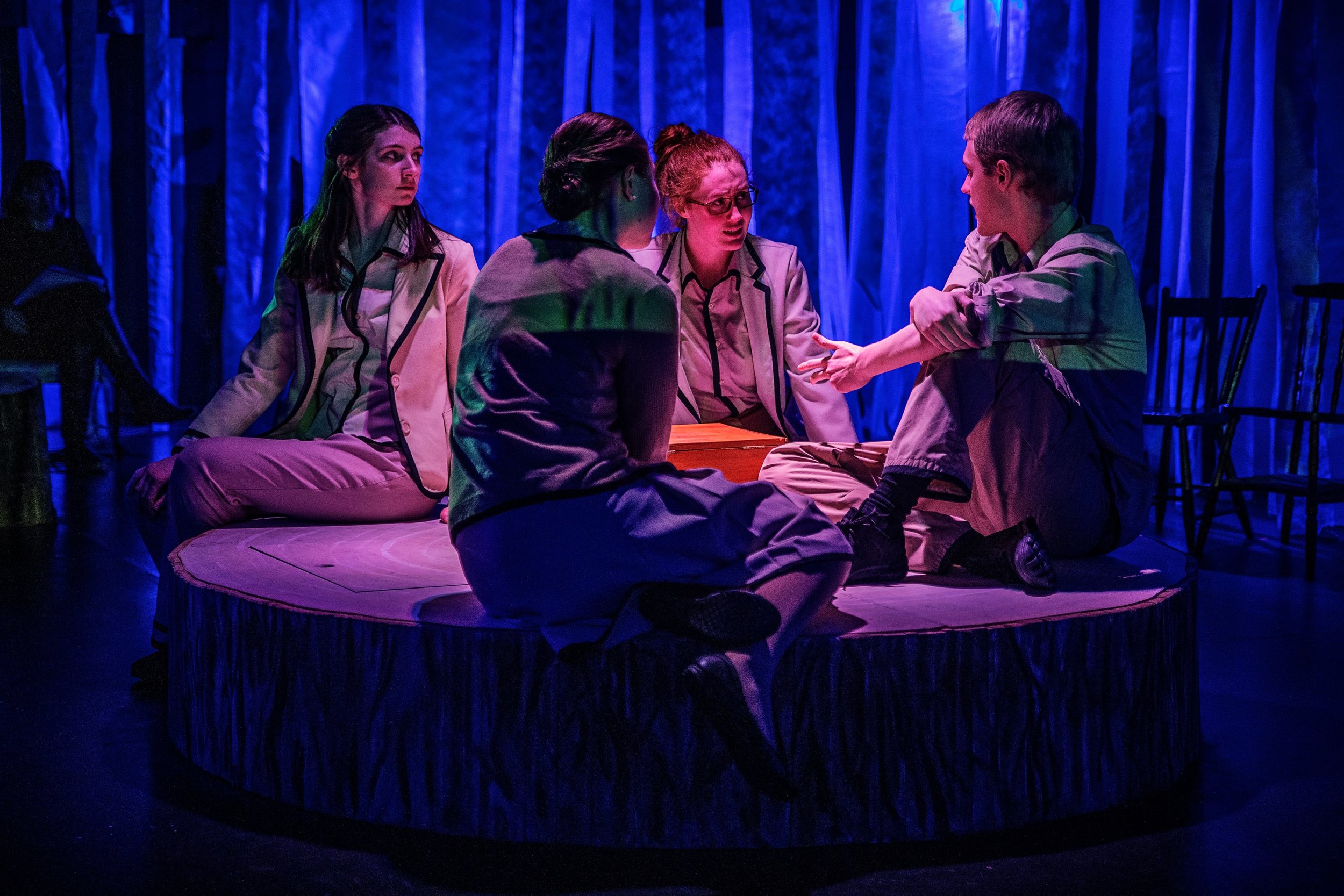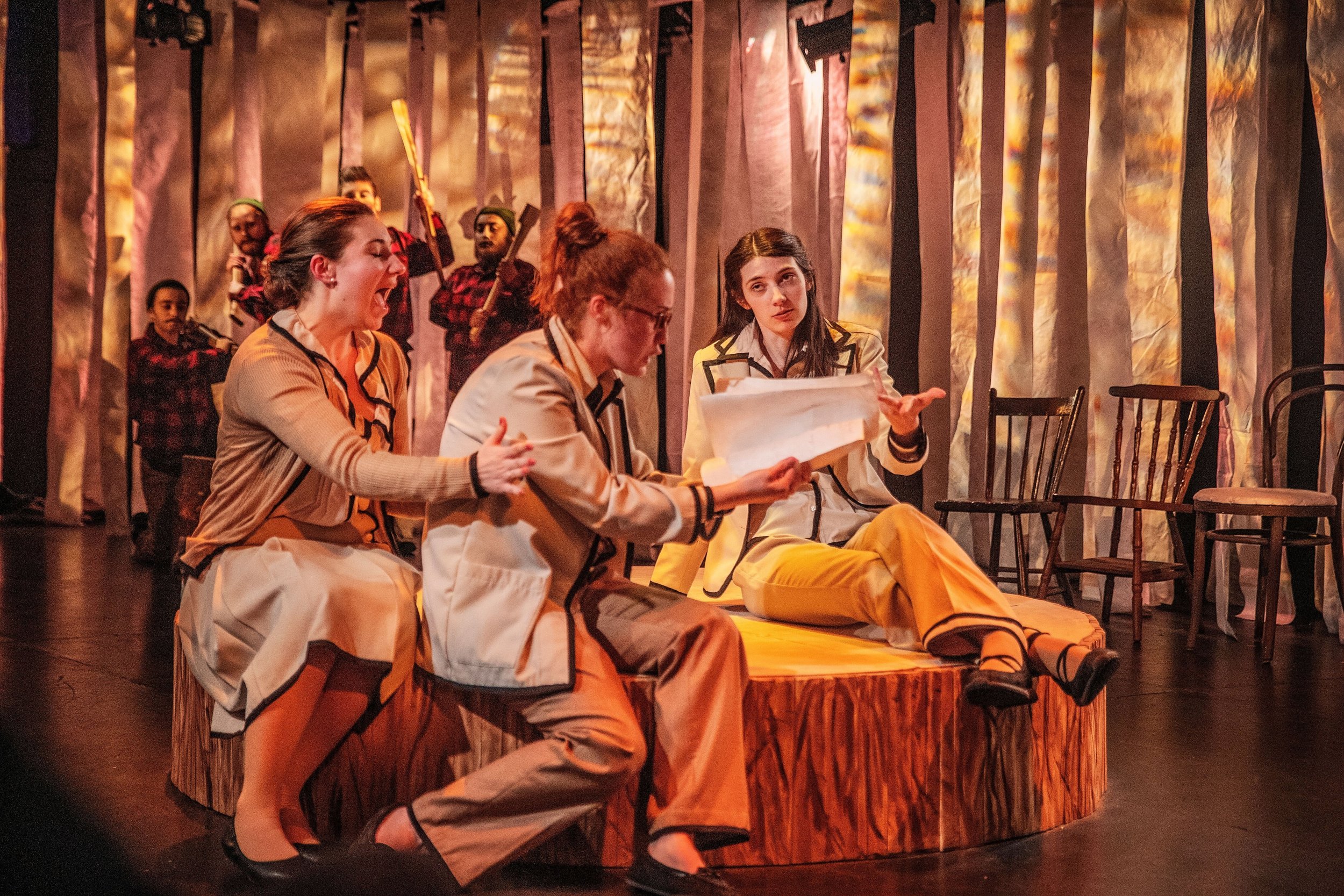TREE
WELCOME
TO
THE
MUESEUM
BY ROBERT PLOWMAN
“To have common ground means this: that roots which have ground elsewhere can reach into me and actually become me.”
Finding and Feeling Common Ground
ABOUT THE PROJECT
This project began in a winter 2018 performance creation class wherein students learn the meaning of ecology, and their agency in relation to it, through performance techniques and extensive research. Part of this process involved careful consideration about our relationship to trees. Our research brought us to a book entitled The Hidden Life of Trees, by German arborist Peter Wohlleben. This book is remarkable for a number of reasons, but for the students and me it offered an intellectual and creative territory for us to discover and cultivate a fuller understanding of trees as living beings. As collaborators in performance creation, we discovered that trees communicate, consume, compete for resources, reproduce, and enjoy the company of others in different ways than humans; so, the discovery of the capacity to strive for a full life that we share with trees was soon followed by the understanding of just how different they are to us. Yet, our relationship runs deep.
The performance creation class continued to delve into other facets of humanity’s relationship with nature, including our problematic habits of consumption – of food, plastic, and other resources that clearly demonstrate our ever-growing appetite for more of everything in our lives. Our University of Waterloo community is full of smart, ambitious, technologically savvy people. It’s these qualities that serve the university’s goals to be innovative, competitive, entrepreneurial, and “beyond…”, as the university’s latest marketing campaign suggests. But perhaps these qualities distract us from a more fundamental awareness of our place in nature, within the planet’s ecosystem.
Our class research brought us back to the place of home in ecology. I asked the students to consider the qualities they associate with, and enjoy within, the place they call “home.” Many stated that home is a place of comfort, security, happiness, and connection with loved ones. For the most part the students were describing a private, often familial sense of home, so then I asked them to consider an expanded sense of home; that is, I wanted them to consider if these qualities would change if they defined the planet Earth as their home. We all agreed that the comfort and security we yearn for in a home should extend to the whole planet. So, if we envision Earth as our home, and we have certain desires and expectations of how this home will bring us comfort and security, the question arises: Why is humanity doing so much to destroy our comfortable home?
Geneticist and environmentalist, David Suzuki reminds us that economics and ecology are both based on the Greek word oikos, meaning household or domain. Ecology is the study of home, while economics is its management. Ecologists try to determine the conditions, laws, and principals that enable life to survive and flourish. In his environmental advocacy work, Suzuki is regularly reminded by business people and politicians that he has to be “realistic” in his advocacy because “the economy is the bottom line.” He reports that he was once told by a Canadian minister of the environment that
“environmentalists should understand we can’t afford to protect the environment if we don’t have a strong, growing economy.” In Canada, even a minister whose primary job is to protect the environment bows before the economy as the highest priority. By elevating the economy above ecological principals, we assume that we are immune to the laws of nature; that we somehow are above our place within the ecosystem, and the relationships we share with the natural world. Since all of our most fundamental needs for survival come from the ecosystem of our planet, Suzuki points out that raising this human-created entity – the economy – above that reality is suicidal. Suzuki advocates for us to focus on our embeddedness within the biosphere, and to conduct ourselves in accordance with how our agency affects the many relationships that make up the world’s ecology.
Robert Plowman, the playwright on this project, began the research and writing that would eventually become Welcome to the Tree Museum in the spring of 2018. He had access to all the research done by the students in the performance creation class, as well as documentation of their creative work. After he met with Paul Cegys, the lead scenographer on the project, and myself, Robert began crafting a script. His writing took the project in an interesting and compelling direction. The question of ‘what are we doing to our home?’ was applied specifically to the relationships of a family. Robert grounded the more abstract work of the performance creation class in a reality that is likely more immediately familiar to those who might attend this performance on the University of Waterloo campus. I think the play’s focus on human relationships offers a compelling and unique perspective on our ecological crisis. Welcome to the Tree Museum illuminates the quality of human agency, in relationship to our natural world, that possesses all of the wonders and disasters of our capacity to desire – for greater achievement, understanding, connection, and control. Our capacity to desire makes us a peculiar, unbalanced part of the ecosystem.
The ecologist Edward O. Wilson coined the word biophilia (bio – life and philia – love) to signify what he believes is an innate need to “affiliate with other species.” In other words, our need to be with other species is built into our genome. Numerous studies corroborate this idea. People in hospitals, seniors’ communities, universities, and other institutional settings have recorded the positive influence of animals and plants. Cancer patients feel better when they are out in nature; stress is alleviated and there are documented mental health benefits from walking more in nature. Love is a powerful force that motivates behaviour in social animals, and helps provide an evolutionary advantage for our offspring. Perhaps the power of love is crucial to stimulate and awaken ourselves to the fullness of our relationships with all that surrounds us in the world. I hope that the audience of Welcome to the Tree Museum might find and feel a common ground. Humans, like all living organisms, are deeply embedded in our home, the Earth, and whatever we do to this home, we do to ourselves.
